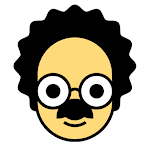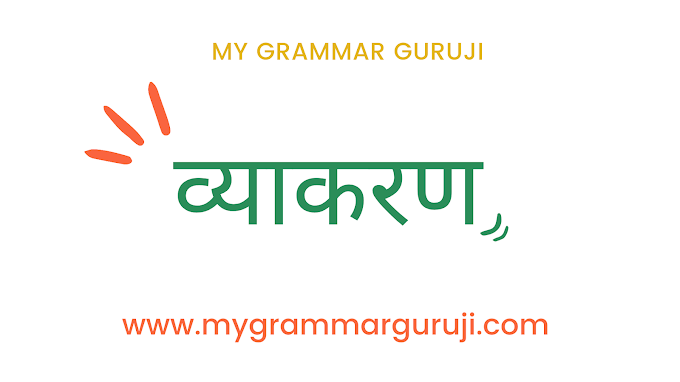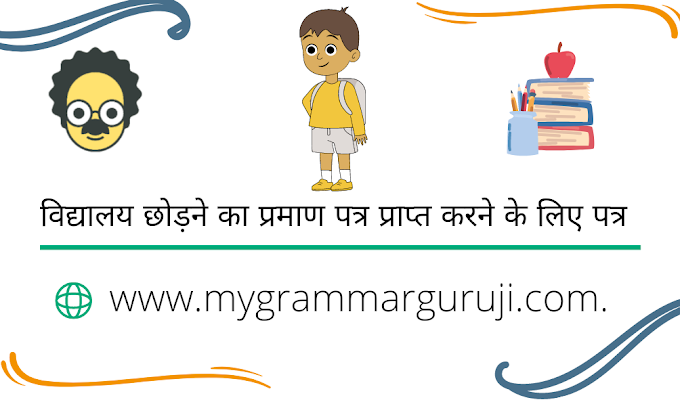Conjunction
A word that is used for joining other words, phrases or sentences is called conjunction.
Or
A conjunction joins words or groups of words in a sentence.
Types of Conjunctions
- Coordinating Conjunction
- Subordinating Conjunctions
- Correlative Conjunctions
1. Coordinating Conjunction
The job of a coordinating conjunction connects words, phrases, or clauses that are independent or equal.
Coordinating conjunctions always come between the words or clauses that they join.
There are seven coordinating conjunctions. There's an easy way to remember them - their initials : FANBOYS
F-For
A-And
N-Nor
B-But
O-Or
Y-Yet
S-So
I. For : के लिए
Examples :
- I work hard for my family.
- I have bought it for you.
II. And : और
Examples :
- He bought apples and oranges at the store.
- We are going to the zoo and the aquarium tomorrow.
III. Nor : न (ही)
Examples :
- He had never seen nor heard peacock.
- It was neither good nor bad in mathematics.
IV. But : किंतु, परंतु, लेकिन
Examples :
- I want to go to the party, but I am so tired.
- The boys made an effort, but they still lost the game.
V. Or : या
Examples :
- Would you like coffee or tea?
- Do you want to stay at the party or go home?
VI. Yet : अभी तक
Examples :
- I have not eaten breakfast yet.
- We don't yet know what really happened.
VII. So : इसलिए, अतः, ताकि
Examples :
- It is too late so we cannot go to cinema.
- Let's go to the cinema early so that we can get good seats.
2. Subordinating Conjunctions.
A conjunction is a word, or words, used to connect two clauses together.
The most common subordinating conjunctions are :
After, before, as, if, because, although, once, since, though, till, until, unless, whether, while, even, in case, so that, what, when, how, which, where, that, who/whom, than, whoever/whomever, in order that, as much as, as soon as, as long as, as far as.
I. After : पश्चात; बाद में
Examples :
- They arrived at the station after the train had left.
- I went out yesterday morning, and after that I was at home all day.
II. Before : पहले
Examples :
- I arrived before the other guests.
- I finished the test before anyone else.
III. As : जैसे या जैसे हीं
Examples :
- Please do as I tell you.
- The phone rang just as I was leaving the house.
IV. If : यदि, अगर
Examples :
- I'll only stay if you offer me better deal.
- I can’t remember if I posted the letter or not.
V. Because : क्योकि
Examples :
- I like you because you are smart.
- We cancelled the trip because of the rain.
VI. Although : यद्यपि, हालाँकि
Examples :
- I love dogs, although I wouldn’t have one as a pet.
- They didn't go to the party, although they were invited.
VII. Once : एक बार
Examples :
- They go for dinner once the month.
- Once I pass all my exams, I'll be fully qualified.
VIII. Since : तब से अब तक
Examples :
- I haven't eaten since early this morning.
- I haven't heard this song since my childhood.
IX. Through : (किसी वस्तु के) इस पार से उस पार; आर-पार
Examples :
- He went through a crowd of people.
- She didn’t get through the first interview.
X. Until : जब तक
Examples :
- You're not watching TV until you finish your dinner.
- I didn't know she was english woman until she spoke.
XI. Unless : तब तक नहीं जब तक
Examples :
- You'll be sick unless you stop eating.
- I'm not going to the party unless you come too.
XII. Whether : कि क्या, या, दोनों में से कौन-सा?
Examples :
- I don't know whether he will come or not.
- You are going to school whether you like it or not.
XIII. While : उस समय, जब
Examples :
- I fell asleep while studying at my desk.
- She interrupted him while he was reading.
XIV. Even : यहाँ तक की
Examples :
- He gets up early even on Sundays.
- She married him even though she didn't like him.
XV. In case : अगर (क्योंकि कुछ हो सकता है)
Examples :
- I think I’ll take an umbrella in case it rains.
- I took the keys in case I came home late.
XVI. So that : ताकि
Examples :
- We left a message with her secretary so that she would know we have come.
- He decided to stay at home so that he could watch the match on TV.
XVII. When : जब, कब
Examples :
- Everyone looked at me, when I came in the room.
- I don't know when she is coming home.
XVIII. How : कैसे
Examples :
- I don't know how to use this machine.
- Can you show me how you fixed the computer?
XIX. Where : कहाँ, जहाँ
Examples :
- Please tell me where you are going.
- He didn't tell anyone where he was going.
XX. Which : जो
Examples :
- The house which he rented was expensive.
- This is the pen which I bought before the examination.
XXI. That : जो, उस
Examples :
- Can you please look at that photo.
- Aman feels happy now that he has moved into a new home.
XXII. Than : से
Examples :
- He has lived more than eighty years.
- She is more beautiful than his sister.
XXIII. Who : कौन, जो
Examples :
- I don't like people who get angry easily.
- She needed someone who would understand her.
XXIV. Whom : किसको, जिसे
Examples :
- We don't know whose keys these are, so we can't return them.
- The couple has three children, two of whom were adopted.
XXV. Whoever : जो कुछ या कोई भी हो
Examples :
- We must stay united whatever happens.
- The shopkeeper says you can buy whatever you desire.
XXVI. Whenever : जब कभी
Examples :
- I will be there whenever you want me.
- You may leave whenever you wish.
XXVII. Whereas : जबकि
Examples :
- Both of my parents went to college, whereas I only finished high school.
- The most of people like dog, whereas others hate it.
XXVIII. In order that : ताकि
Examples :
- We got up early in order that we would not be late for the school.
- She opened the window in order that the wind could come in.
XXIX. As much as : जितना हो सके, इतना ज्यादा
Examples :
- He wants to help them as much as he can.
- You need to rest tonight, sleep as much as you can.
XXX. As soon as : जल्द से जल्द
Examples :
- I'm going to have a shower as soon as I will get home.
- I'll give him the message as soon as I will see him.
XXXI. As long as : जब तक कि
Examples :
- You may stay here if you like, so long as you keep quiet.
- The car will keep running as long as you take good care of it.
XXXII. As far as : जहाँ तक कि, जितना
Examples :
- You will learn your lessons only in so far as you are willing to keep studying them.
- The first Greek writer, so far as we know, who does so is Heraclitus.
3. Correlative Conjunctions
I. Both - and
Examples :
- Both TV and television are correct words.
- She is both happy and excited about her vacation.
II. Not only - But aslo
Examples :
- I am not only hungry, but also very thirsty.
- She got the perfect score in not only English but also mathematics.
III. Either - or
Examples :
- She can have either tea or coffee.
- He either washes the clothes himself or asks her to wash them.
IV. Neither - or
Examples :
- The old woman can neither walk nor talk.
- He can neither speak nor write French.
V. Whether - or
Examples :
- I asked him whether or not I should go.
- The decision depends on whether or not Aman wants to make the assignment.







No comments:
Post a Comment
Thank you! Your comment will prove very useful for us because we shall get to know what you have learned and what you want to learn?